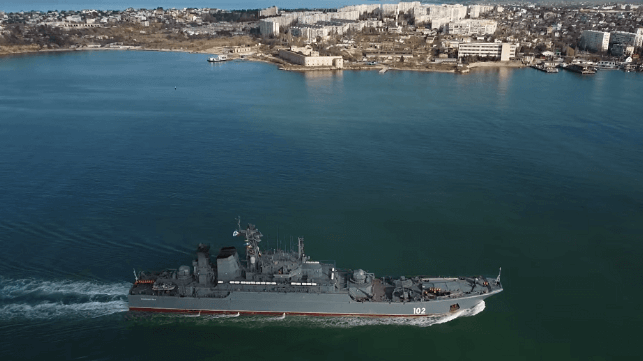Russia is "Weaponizing" Supply Chains for Leverage in Negotiations

Last Friday marked the 100th day since Russia launched its invasion of Ukraine. When the war started, the nature and extent of the impacts to follow were unclear. Although Russia hoped it would overthrow Ukraine’s government within few days of invasion, the grand scheme of the war’s plan seem to have changed/ Russia is now pursuing smaller goals than it had initially, as it now appears to be zeroing in on the Donbas region, where Russian separatists have been fighting since 2014.
Unfortunately, the hefty price of Russia’s war against Ukraine is being borne by the rest of the world. An economic outlook released this week by OECD maps out the war’s tremendous damage to global supply chains.
“The conflict is disrupting the distribution of basic food and energy, fueling higher inflation everywhere and threatening low-income countries in particular. The first urgency is to avoid a food crisis. This may require more international aid as well as cooperation in the logistics of shipping and distribution to countries in need,” said Laurence Boone, OECD Chief Economist.
The grim outlook from the OECD report coincides with ongoing talks between Russia and Turkey, which are meant to unblock shipments of Ukrainian grain stuck in the Black Sea ports.
On Wednesday, little progress was made in the talks as Russian Foreign Minister Sergei Lavrov insisted that it was Ukraine’s responsibility to de-mine its Black Sea Ports. However, the government in Kyiv demands strong security guarantees for shipping to resume. Since the war started, Russian ships have blocked Ukraine’s Black Sea access, halting seaborne exports of grains.
“Even if the ports wanted to open soon it would take some time until ships could enter or depart. Completely removing sea mines in the port areas would take several months,” said Peter Adams, IMO’s Special Maritime Security Advisor.
Besides the food crisis arising from Russian blockade in the Black Sea, a looming microchips shortage awaits.
Last week, Russia announced it would limit exports of noble gases such as neon, a key ingredient in the manufacturing process for computer chips, until the end of 2022. Exports of noble gases, which Russia supplies to Japan and other nations, will only be allowed with special state permission until December 31.
“The move will provide an opportunity to re-arrange those supply chains that have now been broken and build new ones,” Russia’s Deputy Trade Minister Vasily Shpak told Reuters.
Ukraine, another leading supplier of noble gases, had to suspend production at its plants in Mariupol and Odesa back in March.

that matters most
Get the latest maritime news delivered to your inbox daily.
The new directive from Russia will definitely stretch chip manufacturing, an industry that has been reeling from the pressure of supply chains disruption since the Covid-19 pandemic began.
Meanwhile, Russia has said it will be suspending the 1998 Agreement with Japan that allowed Japanese fishermen to fish near the disputed Southern Kuril Islands. This represents retaliation against Japan for joining the EU and US to impose sanctions against Russia. Japan has also agreed this week to step up military cooperation with NATO amid growing instability in Europe and Asia.
